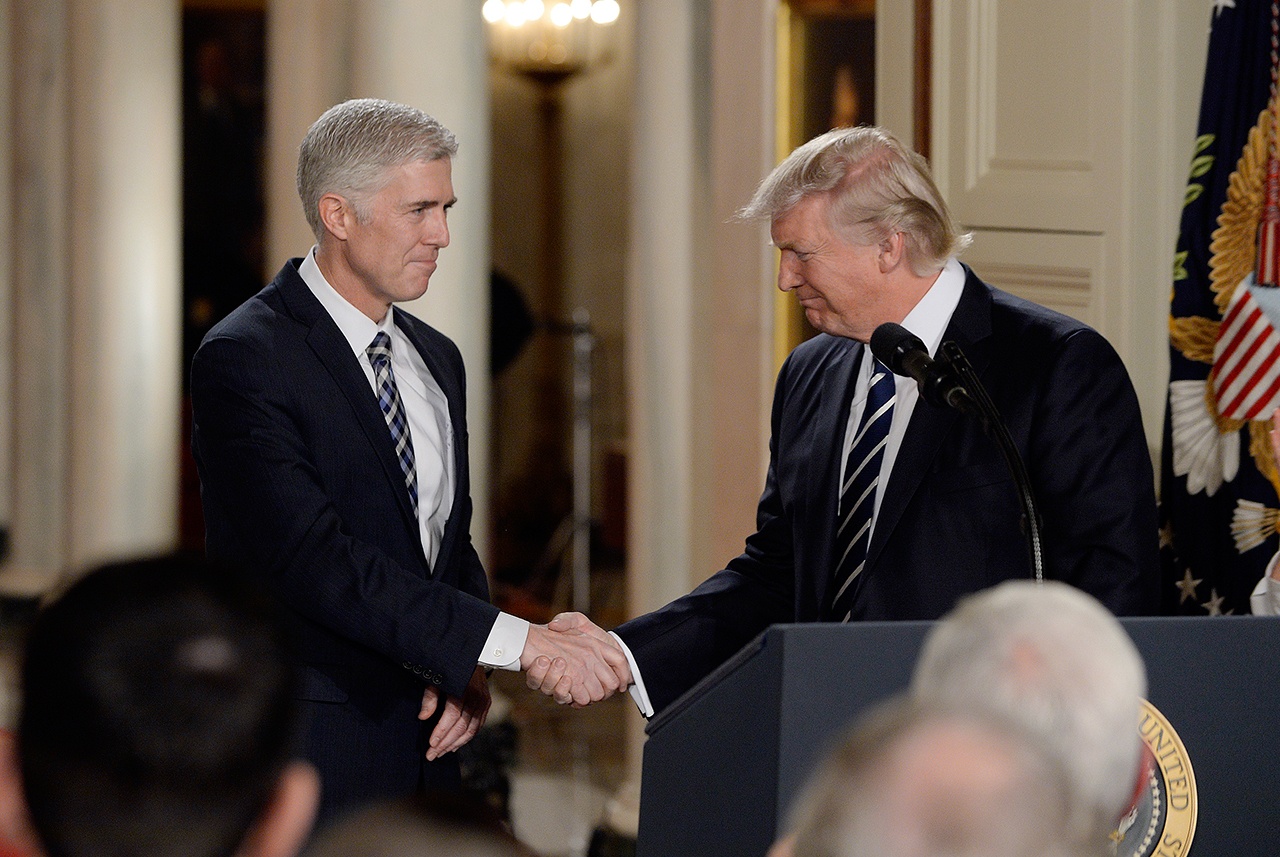By Michael Doyle
McClatchy Washington Bureau
WASHINGTON, D.C. — Judge Neil Gorsuch seems to be a conservative tailor-made for the Supreme Court, albeit with a Western cut.
His Ivy League education fits in with the other justices, four of whom are fellow Harvard Law School graduates. Like three of his potential colleagues, he held a coveted clerkship at the Supreme Court. His deft writing style wins scholarly acclaim.
“I love being a lawyer,” Gorsuch told the Senate Judiciary Committee at his last confirmation hearing, in 2006. “I love that aspect of the profession, of being in the arena and fighting it out within the rules of civility, decency and common sense.”
If confirmed, the 49-year-old judge on a Denver-based appeals court would also bring with him distinctive Western experience that’s rare on the East Coast-dominated Supreme Court.
In his decade of service on the 10th U.S. Circuit Court of Appeals, Gorsuch has overseen disputes ranging across six states, from Kansas to Colorado and Wyoming. The Denver perch, in turn, has given Gorsuch a handle on some distinctive Western resource issues, as in his 2015 decision rejecting a challenge to a Forest Service management plan that allowed ATVs and motorcycles in a national forest in New Mexico.
Tapped Tuesday by President Donald Trump to fill the Supreme Court vacancy left by the February 2016 death of Justice Antonin Scalia, Gorsuch appears to be less of a confrontational choice than several other finalists. Gorsuch won his appellate court seat without a hint of Democratic opposition.
He is a polished writer and public speaker with a genial aspect, not unlike Chief Justice John Roberts Jr. Many liberals and Democrats will oppose him, for various reasons, but he appears to fit within the judicial mainstream. Stanford Law Professor Michael McConnell, who served with Gorsuch on the 10th Circuit, said he showed a “temperamental moderation.”
At the same time, Gorsuch’s conservative views on issues, including support for the death penalty and the Second Amendment, have echoed Scalia’s positions, and they will now take on more weight amid the higher-stakes Supreme Court fight.
“Gun possession is often lawful and sometimes even protected as a matter of constitutional right,” Gorsuch stressed in a 2012 dissent, adding that the felon convicted of possessing a firearm “might very well be wrongfully imprisoned.”
On religious practices, too, Gorsuch appears often to be on the same page as Scalia. In a 2013 opinion, for instance, Gorsuch sided with a pious business-owning family called the Greens who objected to the Affordable Care Act’s contraceptive mandate.
“The mandate infringes the Greens’ religious liberties by requiring them to lend what their religion teaches to be an impermissible degree of assistance to the commission of what their religion teaches to be a moral wrong,” Gorsuch wrote.
Born in Denver, Gorsuch is a fourth-generation Coloradan raised in a political family. His mother, Anne Gorsuch Burford, served in the Colorado House of Representatives and had a controversial tenure as head of the Environmental Protection Agency during the Reagan administration. She died in 2004.
“He’s a genuine Westerner,” McConnell said, noting that “the West has its own culture.”
A Senate page while in high school, Gorsuch earned his undergraduate degree from Columbia University, his law degree from Harvard and a doctorate in legal philosophy from Oxford University. He worked in private practice and at the Justice Department, and he wrote a book about euthanasia and assisted suicide that was published by Princeton University Press, before President George W. Bush nominated him to the appellate court.
The Senate quickly confirmed Gorsuch by voice vote.
A married father of two daughters, Gorsuch has been working out of a federal courthouse named for one of the two Supreme Court justices for whom he clerked, the late Justice Byron White. He also clerked for Justice Anthony Kennedy, a Republican nominee who regularly provides the swing vote on the nine-member Supreme Court.
It’s Scalia, though, whom Gorsuch cites as a judicial influence, particularly in the emphasis on judges relying on the black-and-white text of a statute or the Constitution rather than on what the late justice called the “policy consequences” of a decision.
“Though the critics are loud and the temptations to join them may be many, mark me down too as a believer that the traditional account of the judicial role Justice Scalia defended will endure,” Gorsuch declared in a speech last year at Cleveland’s Case Western University School of Law.
The approach can often lead to decisions expected of a traditional law-and-order conservative. In 2015, for instance, Gorsuch upheld the use of evidence obtained by Kansas law enforcement officers when they stuck a GPS tracking device on a car without a search warrant.
At the same time, like Scalia, Gorsuch has been known to slap down law enforcement officials when he thinks they’ve gone too far.



